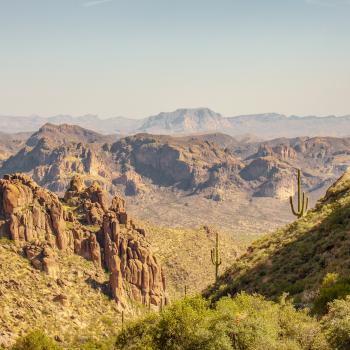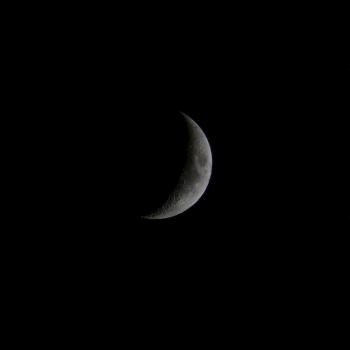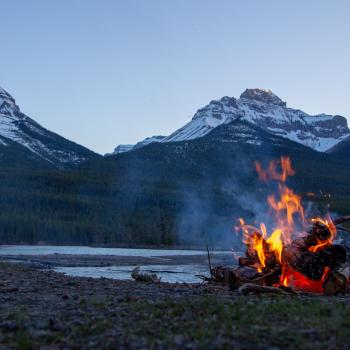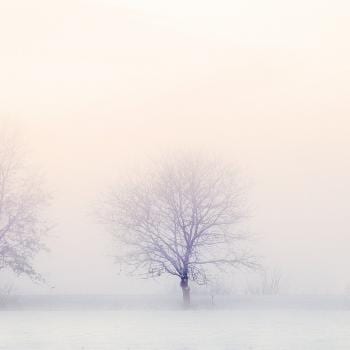Before we begin covering how to worship the Four Gods, I want to go in-depth into each of these ‘new deities’ (you want to know who you’re talking to, after all!). Each of the Four will receive their own post, and as before, questions are very welcome. These posts will cover their role in the Westernlands and our world, their relationships with the other gods, and links to other relevant posts.
the Clarene
the Clarene is the ‘highest and foremost of the gods dwelling in the West’. What that means is before we call the other gods, we call to her. Before we engage in deeper work, we go through her. If we were to lay out a weekly devotional practice, she would get not two but three days, not to mention we give offerings to her first before giving it to the other gods and spirits. We layout an offering that lasts the week, in her name. She is the god from which our bounty flows. She is the god that sustains the other three. She is the land, the fruit, and the strength of the world.
In her mythos, she creates the West by finding that sliver of space between Faeryland (itself a liminal world)* and the human world. She uproots a tree from Faery and a metal stake from the human world and slams them into the liminal space, creating a gate of metal and wood. Passing through the gate, she rips open her body and brings forth the dirt and foundations of the land. She takes the raw magic of the otherworlds and the structure of the human world, and she tosses them together to see what will happen. What happens is the Westernlands.
No mortal, faery, or god can enter the West without her permission, and it is from here we learn one of her ‘lessons’: boundaries. This lesson ties into others such as consent and choice (which should be considered similar, not the same), and boundaries or the violation of is an underlying theme in the mythos. Through this restriction – ‘no mortal, no faery, no god or spirit or soul can enter without my agreement’ – we learn how the Clarene treats those who are within her boundaries. She establishes herself as a protector of everyone in her land.
For this reason, the Clarene is most strongly associated with hospitality. The Other People (both non-physical and embodied) can also be called the Clarene’s people, since we are aligned with her and also receive her sacred protections and bounty. That is not to say that those outside the Other People do not receive hospitality. Rather than firmly ‘within’ and ‘without’ in terms of community, we see community as a very broad spectrum. We have those we are closest to (ideally, our chosen family and our religious community), our wider community that is our acquaintances, the even wider community of our town/city, our country, and so forth, extending outward.
the Clarene offers her protection and wealth to any who do not violate her laws, and so are Other People encouraged to do the same. However, when a law has been violated or a boundary crossed without permission, the Clarene strikes firmly and without remorse. We see this most clearly in the conflict that Mircea brings to the mythos – the Clarene, at every meeting with him, always strikes to kill. We do not take from this story that we should kill those who violate or fall outside of our ethical boundaries, but that we should be aware of where those boundaries are and unrelenting when someone has crossed them.
She is not so much a forgiving god, when her people have been wronged.
The bounty and sustenance that she offers is great, when she gives it. She is our rock, our mountain, the concrete sidewalk beneath our feet as well as the weed growing in the cracks. She is our orchards and cultivated fields and the wild, deep forests. She gives us wild berries and home baked bread. She is warm arms, a safe space, an open home, soft blankets and pleasant air and sound, lulling us to good sleep.
Most often, she appears to me as a tall, voluptuous woman. When I have visited her in my journeys, she has always been very clear and forthright, and she always has some task she would like me to perform while we talk. (This is the reason I sometimes call her the ‘talking god’. She speaks plainly – usually.) These tasks often extend to the embodied realm as well; my scrapbooking for her is one example of such, as is my slow reading and memorization of Grimm’s Fairy Tales.
I have gone to her shaking with rage, and she has directed my anger clearly. I have approached her in sadness and joy and confusion, and always she has helped me (sometimes with kindness, sometimes with cold truth). She fills, for me, a mother role, but how she may approach you could be entirely different. In her mythos, after all, she has a tendency to shamelessly (and what reason would there be for shame?) chase after ‘the ladies’** and it would not surprise me if she maintained that behavior toward some human worshipers/devotees. And while she is the most patient of the Four Gods, she does not have endless patience or benevolence. Her relationship with each of us will, of course, be personal.
In my last post, I called her a sovereignty deity. She is also a home/hearth deity, and she is a type of earth deity. She is not the Earth, nor is she every land that we walk on or interact with. She can be anywhere, but she is not everywhere all at once. She can inhabit and bless our home when we ask her. Just as she requires us to ask first, when coming to her territory, she encourages us to figure out our boundaries and open and close them as needed. She teaches us to be in control of our own space and self. In the mythos, no spirit or god can become a King until she grants that crown.
Her role as a sovereign deity ties strongly into her relations with the other gods.
Each of the other three gods becomes a god through the Clarene. She brings the Ophelia to the West and unlocks the waters within the Ophelia, and in doing so she entwines the fate of Ophelia and herself. She buries the Laetha and gives him a new body, and she is the one to give the silver crown to the Dierne. While each soul and god of the West can move on their own, and the Clarene is largely hands-off in letting the other gods move pieces in the mythos, it is the Clarene that rights the world when it has become too off balance.
That is not to say she is all-powerful. Nor is she all-knowing, and she makes a great deal of mistakes that allow her people and the land to become injured (the story of which can be seen as explaining our own problems, in the modern ‘civilized’ world, as well as how to right those problems). But she is, ultimately, a good leader because she can delegate and understand when to let an issue play out on its own or when to step in. She missteps, but she learns from those mistakes. She doesn’t hoard the kingship or divinity. She gives it gladly to her sister the Ophelia, and she raises the Laetha as a sort-of foster child, and she declares that the Dierne be beloved even above herself.
Her relationship with the other gods is quite similar to her relationship with us. She sustains them and gives them great gifts, and she pushes them constantly to improve. She allows them to become woven into her own body and land, which is a gift she offers the Other People who engage in committed devotional relationships with her and the other gods. She is, consistently, a gift-giver.
Even as she is sometimes competitor to the Ophelia, or stern parent to the Laetha, or challenger to the Dierne, and even as she is the one that their deification came from, she respects them as equals. Even before they are gods, she treats them with dignity (not always love), and she does so to us (humans) as well.
To conclude, the Clarene is a god of sovereignty who teaches us about boundaries, consent, choice, and who brings us the gift of dignity. She offers to give us our own sovereignty – over our bodies, our spaces, our lives.
Links
Four Gods of the Otherfaith
the Clarene + Choice
on the Orchard-Picker and Her creatures (story)
the Book Hoarder (story)
the Gods (Otherfaith Blog)
*Due to this ‘in-between in the in-between’ nature of the Westernlands, I sometimes call the gods and spirits hyper-liminal.
**By ‘the ladies’ I refer to any and all persons and spirits that identify sometimes or always as women or lady-folk. That is not to say that the Clarene does not take male lovers, but her stories seem focused entirely on female-identified or identifying spirits.
[The Otherfaith is a new religion focusing on new gods. The information posted here is based on personal experiences, revelation, and spirit-instruction. You should not expect to see references to folklore or historical texts. My focus is not on finding historical records of these deities but interacting with them as they are and as they themselves instruct.]
















